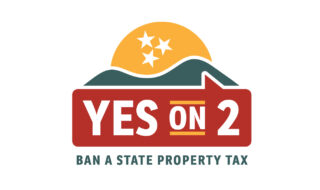Topics:
August 31, 2023 Last Edit: June 5, 2025
Tips on how to recover and rebuild your small business after disaster strikes
Hurricne Idalia: Navigating the Claims Process
After the storm passes, call your insurance company.
At a minimum, you’ll want to ask:- What types of damage are covered?
- How long will it take to process my claim?
- Will I need to obtain estimates for repairs?
Make temporary repairs.
While it’s OK to take steps to protect your property from further damage, you should hold off on making extensive permanent repairs until the claims adjuster (a person professionally trained to assess the damage) has visited your business and assessed the damages. Make sure you save receipts for what you spend on repairs.Prepare for the adjuster’s visits.
The more information you have about your damaged property ––descriptions of as many items as possible, approximate date of purchase and what it would cost to replace or repair them––the faster your claim can be settled.- To substantiate your loss, prepare an inventory of damaged or destroyed items and give a copy to the adjuster, along with copies of any receipts. Don’t throw out damaged items until the adjuster has visited. You should also consider photographing or videotaping the damage. If your property was destroyed, or you no longer have any records, work from memory.
- Identify structural damage to your business and any supporting structures. Make a list of everything you want to show the adjuster, such as cracks in the walls and missing roof tiles. You should also get the electrical system checked. Most insurance companies pay for these inspections.
- Get written bids from licensed contractors. The bids should include details of the materials to be used and prices on a line-by-line basis. This makes adjusting the claim faster and simpler.
- Keep copies of the lists and other documents you submit to your insurance company. Also, keep copies of whatever paperwork your insurance company gives you and record the names and phone numbers of everyone to whom you speak.
After your claim has been settled and the repair work is underway.
Take the time to re-evaluate your insurance coverage. Was your business adequately insured? Did you have replacement cost coverage for all of your assets? Talk to your insurance agent about possible changes.
State:
Get to know NFIB
NFIB is a member-driven organization advocating on behalf of small and independent businesses nationwide.
Related Articles

February 12, 2026
Arizona Small Business Owners Disappointed in Governor Hobbs’ Second Veto of Tax Conformity Bill
“…we’re urging Governor Hobbs to get serious, quit playing games with Arizonans pocketbooks…”
Read More


February 12, 2026
Elik, Turner File Legislation to Benefit Illinois Small Businesses
Legislation would grant Illinois small businesses more flexibility when timing investment decisions
Read More


February 11, 2026
Small Business Owners Thank SC House for Passing Key Property Tax Bill
NFIB is urging the Senate to pass the measure and ease the financial pressure on Main Street,
Read More


February 11, 2026
NFIB Joins Coalition to Prohibit TN from Imposing a State Property Tax
State law gives the General Assembly the authority to impose a state property tax.
Read More







